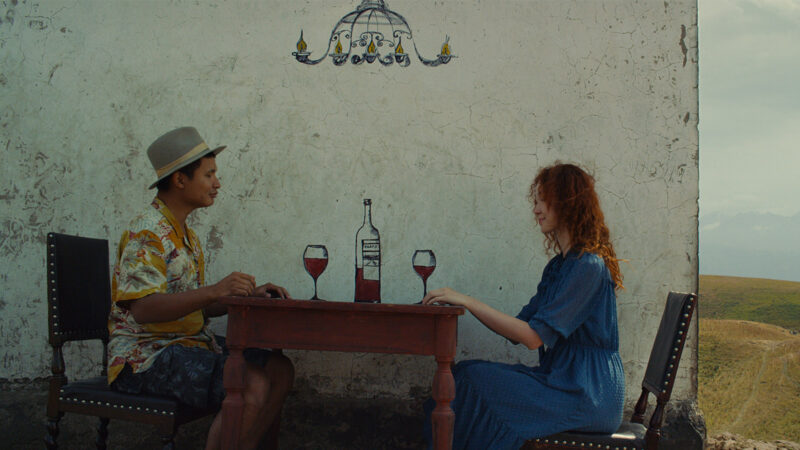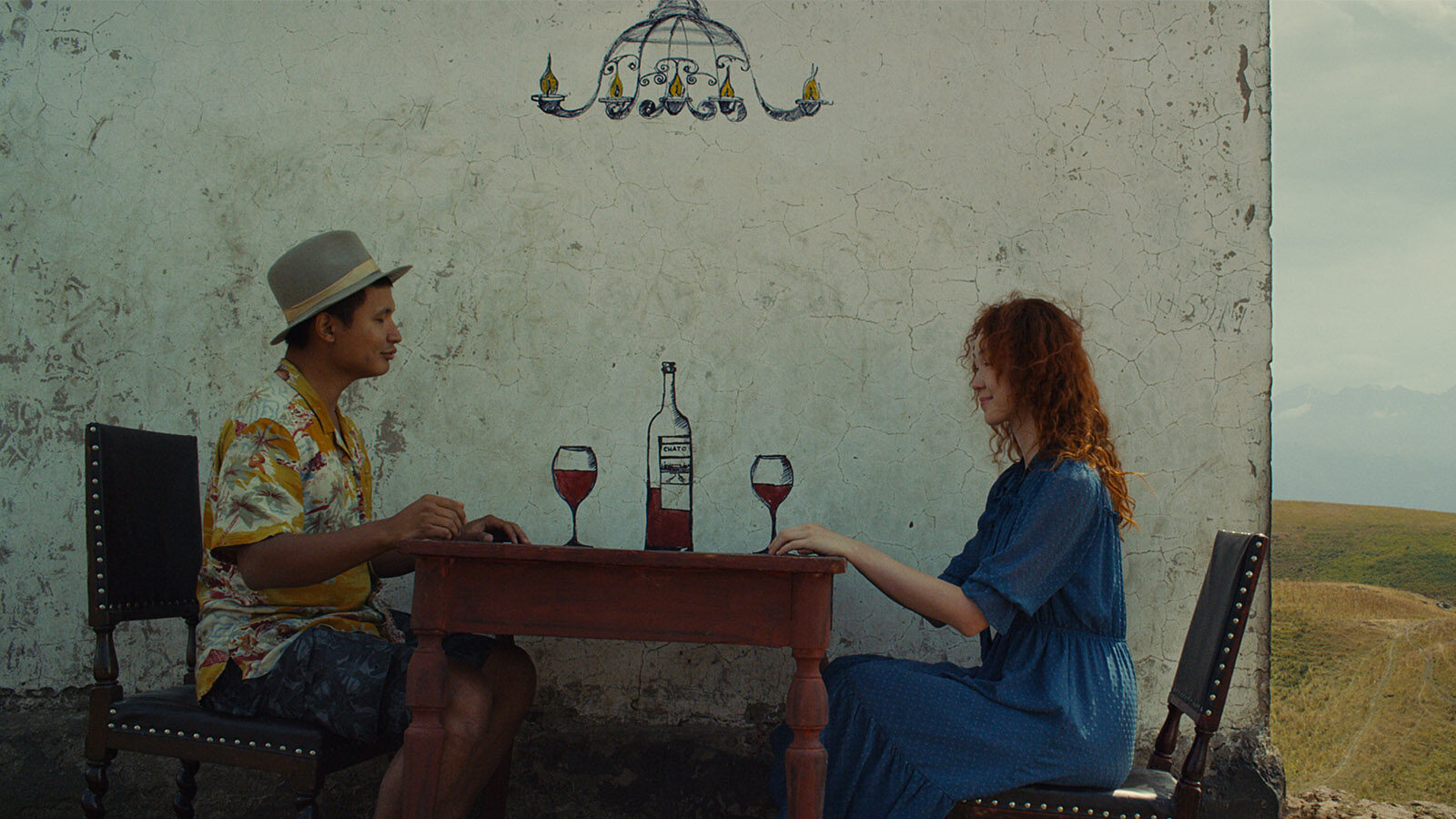

Freshly released from prison, Kermek is eager to start a new life. However, he is soon dismayed to learn from his brother Bolzoy that he wasn't let out for good behaviour: no, it seems that he was allowed to walk thanks to a shady deal between Bolzoy and gangster boss Baldur. Now, to pay his debt Kermek is supposed to go to work for the latter, which he grudgingly does. In the process, he meets prostitute Eva, with whom he soon sets off to leave the world of crime behind and realise his dream of setting up his own cinema in the mountains. With equal doses of tragedy and comedy, Adilkhan Yerzhanov conjures a grim reality from which cinema appears to be the only escape route. Unswerving in his approach, he draws adeptly on elements of the Western and French and American gangster film genres. The film's cinephile nature is also evident in its characters: in Kermek, for instance, who doesn't just want to build a cinema, but instead also quotes constantly from Alain Delon's character in Melville's LE SAMOURAI. Still, Kermek's cinephilia doesn't remain mere homage – instead, for those who dare to dream, it becomes a means of self-assertion in a world without mercy.
- Screenplay: Adilkhan Yerzhanov, Inna Smailova
- Cinematographer: Yerkinbek Ptyraliyev
- Editor: Adilkhan Yerzhanov
- Music: Alim Zairov, Ivan Sintsov
- Sound: Ilya Gariyev
- Cast: Azamat Nigmanov, Kamila Nugmanova, Sanjar Madi, Yerzhan Zhamankulov, Yerken Gubashev, Nurbek Mukushev
- Producer: Kanat Bitemirov, Yerbol Toibayev, Serik Abishev, Olga Khlasheva
- Production Company: Kazakhfilm Studios, Short Brothers, Zerde Films
- Co-Production Company: Arizona Productions
Freshly released from prison, Kermek is eager to start a new life. However, he is soon dismayed to learn from his brother Bolzoy that he wasn't let out for good behaviour: no, it seems that he was allowed to walk thanks to a shady deal between Bolzoy and gangster boss Baldur. Now, to pay his debt Kermek is supposed to go to work for the latter, which he grudgingly does. In the process, he meets prostitute Eva, with whom he soon sets off to leave the world of crime behind and realise his dream of setting up his own cinema in the mountains. With equal doses of tragedy and comedy, Adilkhan Yerzhanov conjures a grim reality from which cinema appears to be the only escape route. Unswerving in his approach, he draws adeptly on elements of the Western and French and American gangster film genres. The film's cinephile nature is also evident in its characters: in Kermek, for instance, who doesn't just want to build a cinema, but instead also quotes constantly from Alain Delon's character in Melville's LE SAMOURAI. Still, Kermek's cinephilia doesn't remain mere homage – instead, for those who dare to dream, it becomes a means of self-assertion in a world without mercy.
- Screenplay: Adilkhan Yerzhanov, Inna Smailova
- Cinematographer: Yerkinbek Ptyraliyev
- Editor: Adilkhan Yerzhanov
- Music: Alim Zairov, Ivan Sintsov
- Sound: Ilya Gariyev
- Cast: Azamat Nigmanov, Kamila Nugmanova, Sanjar Madi, Yerzhan Zhamankulov, Yerken Gubashev, Nurbek Mukushev
- Producer: Kanat Bitemirov, Yerbol Toibayev, Serik Abishev, Olga Khlasheva
- Production Company: Kazakhfilm Studios, Short Brothers, Zerde Films
- Co-Production Company: Arizona Productions
